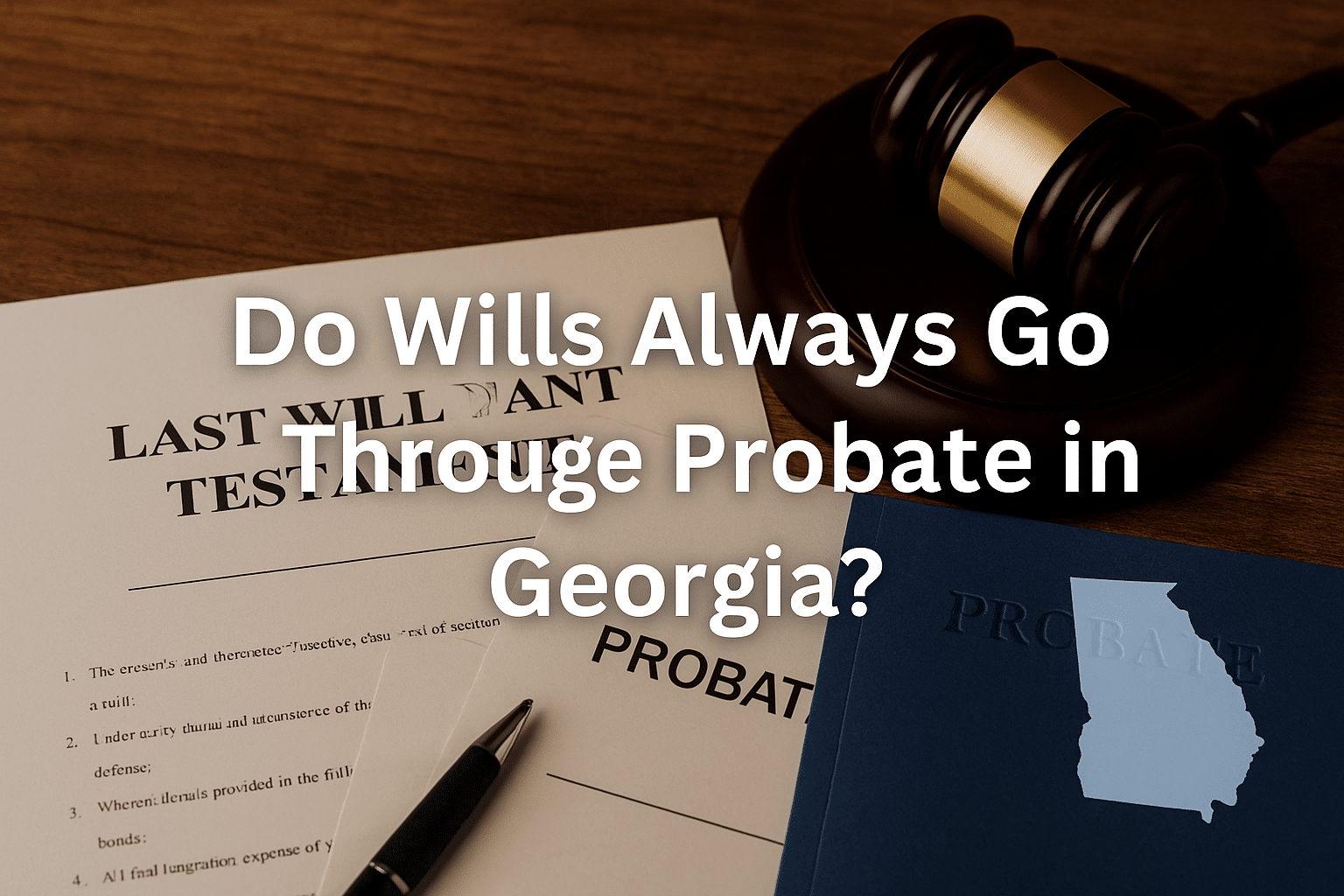If someone leaves behind a will in Georgia, does it always have to go through probate?
Not always—but usually.
In most cases, a will must be submitted to probate court to be recognized and enforced. However, there are a few exceptions and simplified paths, depending on the size and structure of the estate.
Let’s look at when probate is required, when it’s not, and how the process works in Georgia.
What Is Probate?
Probate is the legal process where the court:
- Confirms the validity of the will
- Appoints an executor
- Oversees the payment of debts and distribution of assets
Probate ensures the deceased’s estate is handled according to Georgia law—and the terms of their will.
Yes: Most Wills Go Through Probate
In Georgia, a will generally must be probated to:
- Legally transfer title to property
- Give the executor authority to act
- Satisfy debts and taxes
Even if the family agrees on everything, probate is needed to give the will legal effect—especially if the estate includes real estate or financial accounts.
When a Will Might Not Go Through Probate
There are two main scenarios where probate may not be necessary:
1. All Assets Pass Outside Probate
If the decedent’s property was owned in ways that avoid probate, the will may be irrelevant. Examples include:
- Assets held in a revocable living trust
- Jointly owned property with rights of survivorship
- Accounts with beneficiary designations (like IRAs, life insurance, or TOD/POD accounts)
In these cases, the assets pass directly to the named person, regardless of what the will says.
👉 Related: What Assets Are Subject to Probate in Georgia?
2. Very Small Estates
If the deceased had no real estate and minimal personal property, probate might not be required—or a simplified process may be available.
Georgia allows limited use of small estate affidavits, but these are narrow in scope and don’t apply to most situations involving a will.
Common Form vs. Solemn Form Probate
In Georgia, wills can be probated in one of two ways:
Common Form Probate
- Fast, simple, and no notice to heirs
- Can be challenged for up to 4 years
- Often used when no one is expected to contest the will
Solemn Form Probate
- Requires notice to all heirs
- More court involvement
- Offers stronger legal protection
- Must be contested during the probate process
The choice depends on the complexity of the estate and the family dynamics.
👉 Learn: Can You Change Your Executor in Georgia?
What If the Will Isn’t Probated?
If a will is never submitted to probate:
- The estate is treated as if there is no will (intestate)
- Assets will be distributed according to Georgia’s intestacy laws
- Any wishes in the will may be ignored
Georgia law requires the custodian of a will to file it with the probate court after the testator’s death—even if there’s no intention to probate the estate.
Final Thoughts
While some assets avoid probate, most wills must be probated in Georgia to carry legal weight. The process ensures proper transfer of property, payment of debts, and legal closure for the estate.
At Hurban Law, LLC, we guide Georgia families through probate and estate administration—whether you’re an executor, beneficiary, or need help understanding your options.
Contact us today to discuss your estate situation or get help with probate.





